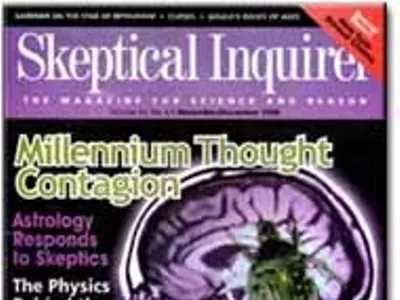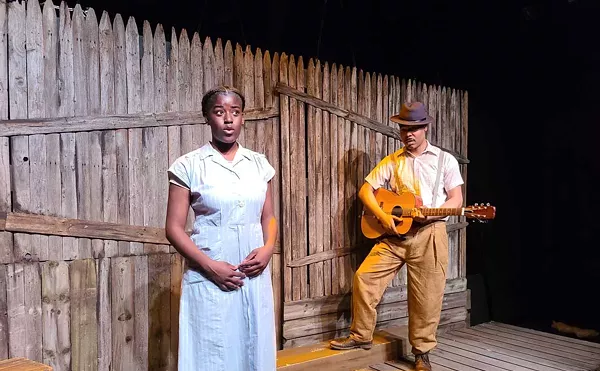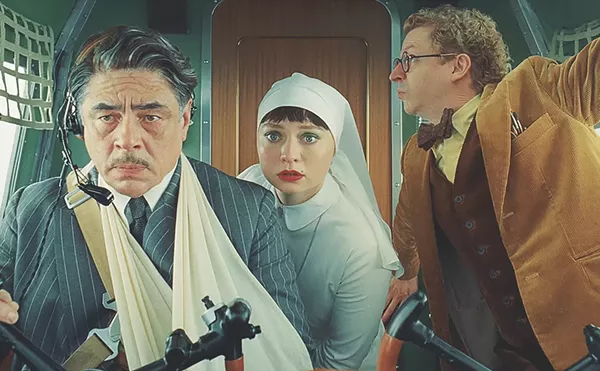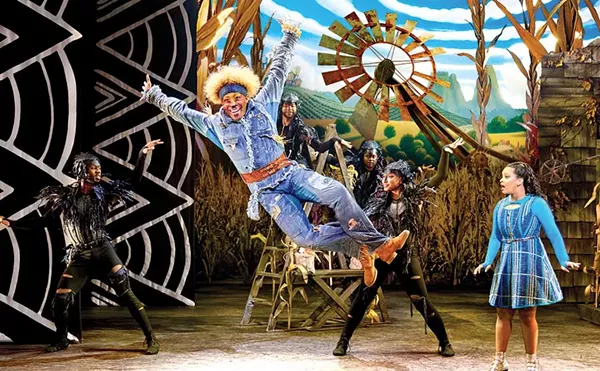
Audio By Carbonatix
[
{
"name": "GPT - Leaderboard - Inline - Content",
"component": "35519556",
"insertPoint": "5th",
"startingPoint": "3",
"requiredCountToDisplay": "3",
"maxInsertions": 100,
"adList": [
{
"adPreset": "LeaderboardInline"
}
]
}
]
In the phenomenal success of Frank McCourt’s memoir, Angela’s Ashes, lies a paradox: that the specifics of an individual’s life can be seen as a universal story. Although few of his readers have firsthand knowledge of the harsh, unrelenting poverty of McCourt’s Irish-Catholic childhood in Limerick, he touches a chord of recognition by exploring the family ties that bind and a determined young man’s refusal to accept his prescribed fate.
Director Alan Parker (The Commitments, Birdy) and co-screenwriter Laura Jones have adapted McCourt’s autobiography as a parable of growing up. Frank is played by three different actors: stern-faced Joe Breen is a resentful, defiant boy; dreamy-eyed Ciaran Owens is the adolescent who discovers the joys of literature; and Michael Legge emerges as a mischievous – and relentless – young striver.
The film itself mirrors McCourt’s point of view. The simplistic perceptions of childhood turn increasingly complex as he matures and can begin to see himself beyond the influence of the church and his parents, Malachy (Robert Carlyle) and Angela (Emily Watson).
As heads of the clan (seven children were born, but only four brothers survived), the elder McCourts come off as archetypes, and like nearly everything in Angela’s Ashes, they are viewed in religious terms. In voice-over, McCourt calls Malachy "the holy trinity in one person:" hypnotic storyteller, ineffectual breadwinner and unrelenting drunk. In her ritualized suffering and sacrifice, Angela fits the classic maternal martyr role.
The Brooklyn-born McCourt becomes enraptured with the mythology of America, a lure so strong it can’t be diminished by memories of New York’s squalid tenements. He dreams of a fabled land of "cowboys and gangsters" illuminated by the Statue of Liberty’s golden torch, the kind of place that could transform an impoverished Irish boy into a Pulitzer Prize-winning author.
Serena Donadoni writes about film for the Metro Times. E-mail her at letters@metrotimes.com.





